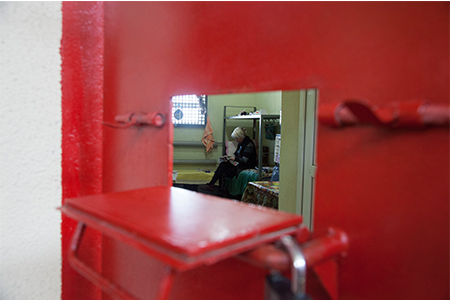Changes to Imprisonment Code to improve conditions of detainees

The Georgian Ministry of Corrections has proposed several changes to the Imprisonment Code aimed at improving the lives of convicts.
Approved by the Government of Georgia, the legislative amendments contribute to preparing the detainees for re-socialisation. To do so, the ministry believes they need to be well-prepared for life after their sentence comes to an end.
If approved by the parliament, the code would give the opportunity to female convicts with children above the age of three to spend their weekends at home until the child reaches the age of four. The authors of the amendment hope this would decrease the traumatic effects for children of being separated from their mothers.
However, factors like the convict’s personal characteristics, criminal record, final sentencing and other factors would be decisive.
Under the current Imprisonment Code of Georgia, female convicts can keep their children at penitentiary facilities until the child reaches the age of three.
The introduction of home detention as a new type of imprisonment; the arrangement of a special space for those with less than six-month detention; and improving access to information are some of the other issues waiting the parliament’s approval.
The document accompanying the legislative amendment says that convicts who have served several (10-15) years often find it difficult to adapt to the new environment and integrate in society after their release.
The Ministry of Corrections also announced that convicts preparing to leave the facility as well as those at low risk and semi-open prison facilities would have the opportunity to keep TV and radio broadcasters in their cells; however, for security reasons, such devices would have to be purchased at a shop on the premises of the prison.
Other changes will be considered for those with severe illness before and/or after detention. The changes are also considered to apply to women above 65, and men above 70 with life imprisonment if they have served half the term of their imprisonment.
However, this will be the ultimate right of the court based on relevant expertise.
Those at low risk and semi-open prison facilities seeking to receive higher education will also be eligible to apply for a bachelor’s degree; under the current laws, convicts can only receive general and vocational education while incarcerated.
The Ministry of Corrections reported that around ten convicts who have passed through the United National Exams, and are registered at relevant universities, cannot pursue a degree due to the above-mentioned restrictions.
The proposed changes are now awaiting parliamentary approval.
 Tweet
Tweet  Share
Share